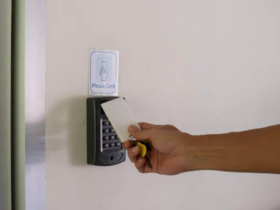Navigating the world of health issues is often like trying to solve a mystery. You’re faced with unexpected twists and turns, and things aren’t always as they seem. Today, we are going to pull back the curtain on a condition that often goes unspoken about due to its sensitive nature—fecal incontinence.
1. Causes of Fecal Incontinence
Before we dive in, let’s answer a fundamental question: what exactly causes fecal incontinence? To put it simply, fecal incontinence is a condition where you lose control over your bowel movements. This could mean an unexpected leakage of stool or an inability to control gas. But why does this happen? The answer lies in a variety of factors that can disrupt the normal functioning of your bowels.
The first and most common cause is damage to the muscles around the rectum, often as a result of childbirth or surgery. Muscle damage can weaken the rectal walls, making it harder to control bowel movements.
Next up is nerve damage. If the nerves that control your bowel muscles are damaged—due to childbirth, a long-term health condition like diabetes, or certain neurological conditions like multiple sclerosis or Parkinson’s disease—you might find yourself dealing with fecal incontinence.
Then there’s constipation, which might seem counterintuitive. But chronic constipation can cause a blockage in your bowel, leading to ‘overflow’ incontinence.
Diarrhea is another major cause. Loose stools can be harder to control than solid ones, increasing the risk of incontinence.
Lastly, some people might experience fecal incontinence due to rectal storage capacity issues. Conditions like rectocele, rectal prolapse, and hemorrhoids can limit the amount of stool your rectum can hold, leading to unexpected leakage.
The causes of fecal incontinence are as complex and varied as the human body itself. But don’t worry, you’re not alone in this. With the right knowledge and resources, dealing with fecal incontinence can become much more manageable. And remember, understanding the cause is the first step towards finding an effective treatment.
2. Symptoms Associated with Fecal Incontinence
Let’s switch gears now and talk about something equally important—the symptoms of fecal incontinence. Here’s the thing: recognizing the signs early on can make a world of difference in managing this condition. So, what should you be on the lookout for?
First off, one defining symptom is the inability to control gas. This may seem like a minor inconvenience or even a source of awkward humor, but it could be a sign of a bigger issue at hand—fecal incontinence.
Next, you might notice unexpected leakage of stool. This can occur either while passing gas or without any warning whatsoever. It’s easy to write this off as a one-off accident, but if it happens repeatedly, it might be time to consult with a healthcare provider.
Along similar lines, an urgent need to defecate with little to no warning can also be a sign of fecal incontinence. This isn’t just your average “I need to find a bathroom fast” situation—it’s a sudden, intense urge that leaves you little time to react.
Another symptom that might fly under the radar is not feeling completely empty after a bowel movement. If you regularly feel like there’s still stool left after going to the bathroom, it could be a sign of fecal incontinence.
Finally, some people with fecal incontinence may experience frequent bouts of diarrhea. While diarrhea is a common condition that most people experience from time to time, recurring episodes could point to an underlying issue like fecal incontinence.
Remember, everyone’s body is different, so you might not experience all of these symptoms. The key is to stay vigilant and listen to your body. If something feels off, it probably is. Don’t hesitate to reach out to a healthcare professional if you’re experiencing any of these symptoms—it’s their job to help, and they’ve seen it all before.
3. Treatment Options for Fecal Incontinence
Alright, we’ve covered the causes and symptoms, but what about solutions? Here’s the good news: there are numerous treatment options available for fecal incontinence. Let’s explore some of these, shall we?
First on the list is Dietary changes. This might seem a little too straightforward, but the truth is, what you eat has a direct impact on your bowel movements. Incorporating more fiber into your diet can help bulk up your stool, making it easier to control. On the other hand, reducing your intake of foods that upset your digestive system—think spicy dishes or dairy if you’re lactose intolerant—can also significantly reduce instances of fecal incontinence.
Next up, Medications. Several over-the-counter and prescription drugs are available that can help manage fecal incontinence. Anti-diarrheal medications can provide relief, especially for those who experience fecal incontinence due to frequent diarrhea. Conversely, if constipation and impacted stool are the issue, laxatives might be the way to go.
Another option is Bowel training. This involves scheduling specific times each day for bowel movements, which can help regulate your digestive system and give you more control. It may sound a bit mechanical, but remember, our bodies thrive on routine.
And then there are Surgical options. For severe cases of fecal incontinence where other treatments have failed, surgery might be considered. Procedures can range from sphincter repairs to the implantation of a device that stimulates the nerves controlling the bowel.
Finally, Physical therapy is another treatment route. Pelvic floor exercises, for example, can help strengthen the muscles that control bowel movements, thus improving fecal incontinence.
These are just a few of the available treatment options for fecal incontinence. The most effective treatment will depend on the underlying cause of your symptoms, your overall health, and your personal preferences. Remember, it’s always best to consult with a healthcare professional before starting any new treatment regimen. They can provide you with personalized advice and guidance based on your specific situation.







